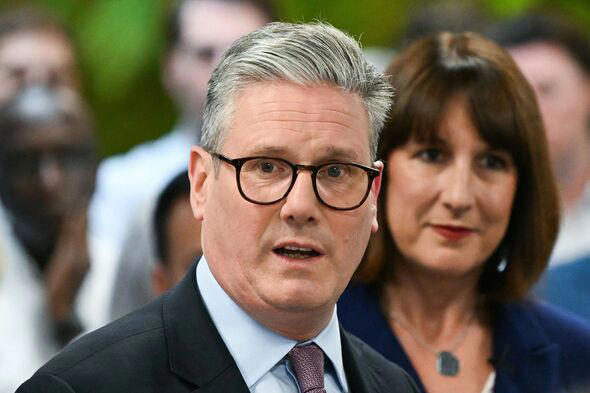UK Energy Bill Hikes 2025
UK Energy Bill Hikes 2025 are adding to the financial strain on millions of British households, with further increases expected in April. Discover how these changes impact everyday costs and the government’s promises.

UK Energy Bill Hikes 2025: What You Need to Know
Millions of British households are bracing for yet another rise in energy bills as UK Energy Bill Hikes 2025 continue to dominate headlines. On January 1, the energy price cap increased to £1,738 annually for the typical household. However, predictions indicate another rise to £1,785 from April, making it the third consecutive increase in less than a year.
These escalating costs are placing significant financial pressure on families already grappling with rising living expenses, including council tax, water bills, and transport fares. Critics argue that Labour’s government is failing to fulfill its election promises, particularly regarding energy affordability.
Why Are Energy Bills Increasing Again?
The UK Energy Bill Hikes 2025 stem from multiple factors, including fluctuations in global gas and electricity prices. The price cap, set by Ofgem every three months, reflects changes in wholesale energy costs. Recent geopolitical tensions, such as uncertainty over gas supplies through Ukraine and increased demand during Europe’s cold weather, have caused wholesale prices to climb by 20% in just two weeks.
Although Ofgem aims to balance the cost for consumers, the system means that when global prices rise, so do household bills. The April price cap, to be officially announced next month, is expected to confirm the increase.
The Broader Impact of UK Energy Bill Hikes 2025
The rising energy costs are just one part of a larger wave of price increases hitting British households:
- Council Tax: From April, households will face an average increase of £110, following government approval for inflation-busting rises.
- Water Bills: Families in England and Wales will see annual water costs rise by an average of £86.
- TV Licence Fees: The fee will increase by £5 to £174.50, in line with inflation.
- Bus Fares: Single fares have already risen from £2 to £3 on most routes as of January 1.
Together with the UK Energy Bill Hikes 2025, these changes are creating a significant financial burden for millions of people.

Labour’s Election Promises Under Fire
When Labour came to power, they pledged to reduce energy bills by £300 by 2030. However, the UK Energy Bill Hikes 2025 are casting doubt on this commitment. Critics argue that the government’s push for net-zero energy, which requires substantial investments in green energy infrastructure, is driving up costs for consumers.
Adding to the controversy, winter fuel payments worth up to £300 for pensioners not receiving benefits have been scrapped. This decision leaves 10 million older people with less financial support during the cold months, further undermining public trust in Labour’s promises.
Opposition Criticism of UK Energy Bill Hikes 2025
The Conservative Party has been vocal in its criticism of Labour’s handling of energy costs. Claire Coutinho, the Tory energy spokesperson, stated that Labour’s focus on net-zero policies is leading to “billions of pounds in higher bills and taxes.” She also highlighted the gap between Labour’s promises and the reality of increasing energy prices.
In addition, the rising energy costs are compounded by tax increases introduced by Chancellor Rachel Reeves. Employers warn that the £25 billion hike in national insurance contributions will reduce pay rises, limit job opportunities, and push up prices for consumers.
Future Outlook for UK Energy Bills
While the UK Energy Bill Hikes 2025 are causing immediate concern, there is some hope on the horizon. Experts predict that the energy price cap could drop in July. However, any relief is expected to be short-lived, as prices are forecasted to rise again in October.
Craig Lowrey, a principal consultant at Cornwall Insight, emphasized the uncertainty surrounding these predictions. “The turbulence in wholesale markets reminds us to remain cautious of forecasts,” he said, noting that factors such as geopolitical instability and changes in government policies could impact future prices.
Broader Economic Challenges
The UK Energy Bill Hikes 2025 come at a time of stagnant economic growth. Official figures show that the economy flatlined in the third quarter of 2024, with no growth expected in the final months of the year. Business leaders warn that recent tax increases and rising costs are further dampening confidence.
Prime Minister Sir Keir Starmer has acknowledged the difficulties faced by households. In his New Year message, he pledged to fight for change and promised to “put more cash in your pocket.” However, these assurances are met with skepticism, given the ongoing financial strain on families.
Conclusion: Navigating UK Energy Bill Hikes 2025
The UK Energy Bill Hikes 2025 highlight the challenges of balancing the transition to green energy with affordability for households. As energy bills and other living costs continue to rise, many families are left questioning the government’s ability to deliver on its promises.
While there may be some relief in the coming months, the overall outlook remains uncertain. For now, households must prepare for ongoing financial pressures and hope that future policies bring more stability to their budgets.



